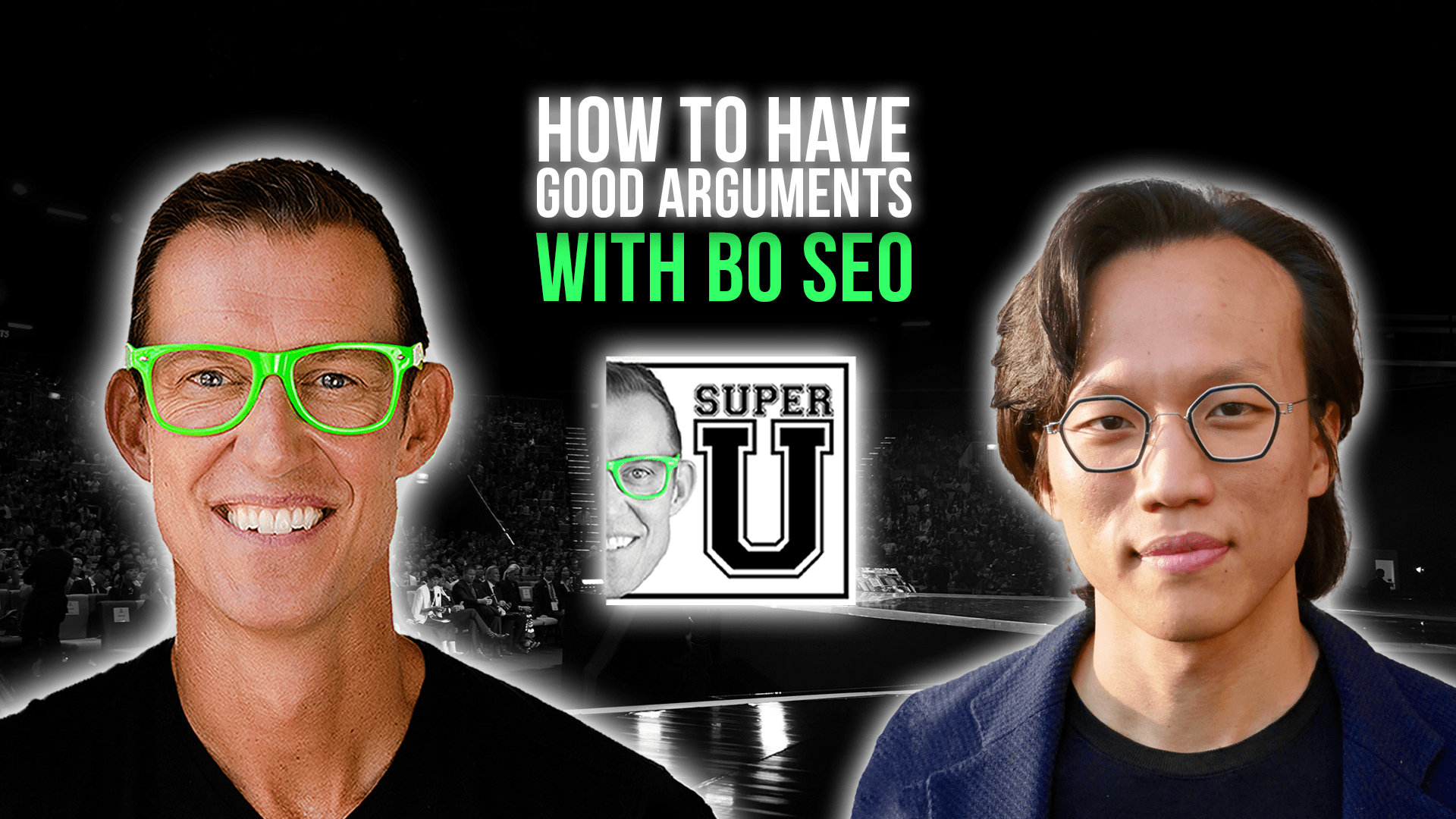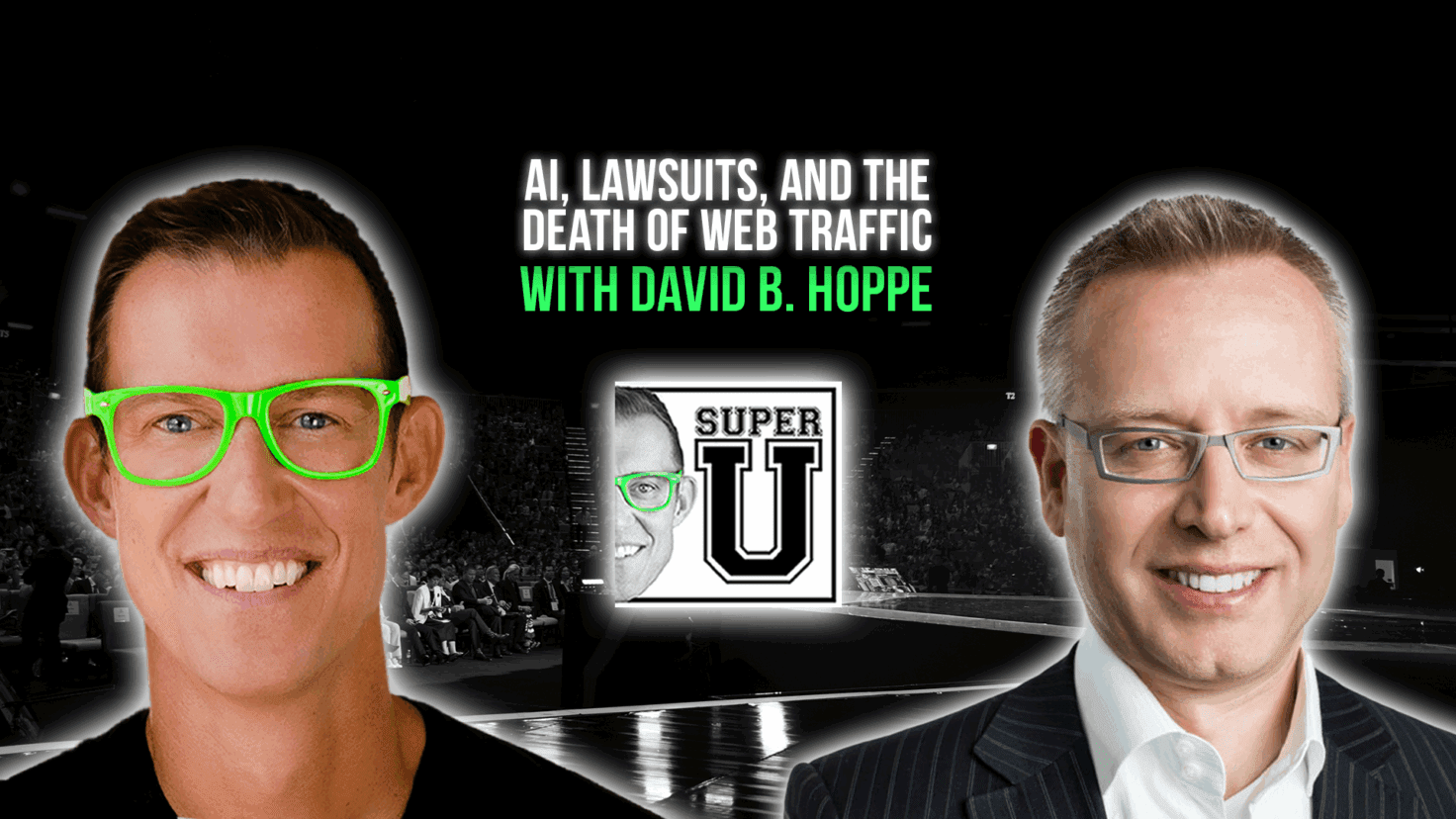How to Have Good Arguments with Bo Seo
Today, Equalman sits down with Bo Seo, a two-time world champion debater, former coach of the Australian national debating team and the Harvard College Debating Union. One of the most recognized figures in the global debate community, he has won both the World Schools Debating Championship and the World Universities Debating Championship. Bo has written for The New York Times, The Atlantic, CNN, and many other publications. He has worked as a national reporter for the Australian Financial Review and has been a regular panelist on the prime-time Australian debate program, The Drum.
Bo and Erik discuss the difference between debate and argument, the risks of conflict avoidance, how to have more productive arguments, the problems that accompany online bickering, the most common mistakes made by amateur debaters, and the argument checklist.
5x #1 Bestselling Author and Motivational Speaker Erik Qualman has performed in over 55 countries and reached over 50 million people this past decade. He was voted the 2nd Most Likable Author in the World behind the Harry Potter series.
Need a sneak peek? Below are the main takeaways from the episode.
How to Have Good Arguments with Bo Seo
Episode Preview:
“How do we make arguments more productive?”
“I think at a high level, it’s about reclaiming the craft of it. Right. And I know, because I’ve heard it as a shy person. Someone for whom raising their voice is not the first instinct that it can be very frustrating when someone says to you raise your voice, say, well say your piece, and they talk about all the benefits and the creative, productive potential, all the stuff that I just said, it can be very annoying. And, I don’t want to just be a kind of call to arms, I need something that I can do in order to carry out the instruction. And that is what I think the benefit of debate is. So it says, Here’s how you make an argument. Here’s how you respond, here’s how you use speech and gesture, and all of these tools that we have to get across to the other side. So I’ll give you an example of “how to” that I think may be the first step in having more productive arguments. And this is responding to the problem of us talking past one another. You think about the last big fight that you had in your personal life, it’s often hard to know what the disagreement was about. Right? It was something about the dog initially, it was about the trash initially, but then it became about something a whole lot more. One thing that debate advises is that every disagreement should start with some agreement. It starts by naming what the disagreement is. Is it a disagreement about the facts? Is it a disagreement of opinion? Is it a disagreement of action, what we should do, and saying, this is what we are disagreeing about? We may have other disagreements, and we’ll get to them in due time. But some of those are off limits for our purpose of making progress towards one, knowing the terrain of a disagreement, I think, lowers the barrier to people being able to engage in it. And it also prevents the conversation from going off track.
…another part of, you know, having one foot in the conversation and one foot outside. So you are both a participant in the conversation. And you’re a custodian of it, right, you’re looking after it, you’re shaping it together. And so being able to, when you get into a rut, where emotions are rising, but you’re not connecting, and it’s not a problem for there to be lots of emotions, as long as you’re getting through to one another in some way. And it’s not just sometimes it becomes a game of hurting the other person’s feelings that can be at its most poisonous, in those moments, being able to say, without even knowing all the answers, I think something has gone off the rails here. I think we may be off track, I think we’re not talking about the same thing. And having that observation and saying what do you think all of a sudden, you’ve pulled timeout on the game of the disagreement, and you’re talking about the game talking about the conversation. So I think that might help. And in debate, a big part of it is the preparation that goes into it. Right? So one kind of mental exercise that I would encourage listeners to to consider is, you know, especially when you kind of know what the disagreement is going to be, and we have these high-stakes, disagreements that we’re going to have to work through ahead of time thinking about? Well, here’s what I think the disagreement is. What is the best argument for the other side? Right? What are the biggest problems with my position that I can find, and that little bit of distance from your position, saying it’s certainly my positions are a part of my identity, but it’s not all of it, it could just as easily have been that I was arguing for another position. All of that helps bring down the temperature too. So the preparation, the habits of mind that we cultivate, that’s a part of what we bring into a discussion, too. So it’s not just in the moment, you have to pull up this strength. I think learning the tools of argument practicing it can change the temperature of the room when we walk into it.”

Learn More and Connect with Bo Seo:
Good Arguments by Bo Seo
Twitter: @helloboseo
To ensure you don’t miss future episodes, subscribe to our podcast by clicking here >> Super U Podcast. We hope these tips help unlock and unleash your inner superpower!
The Super U Podcast is hosted by #1 bestselling author and Motivational Speaker Erik Qualman.





